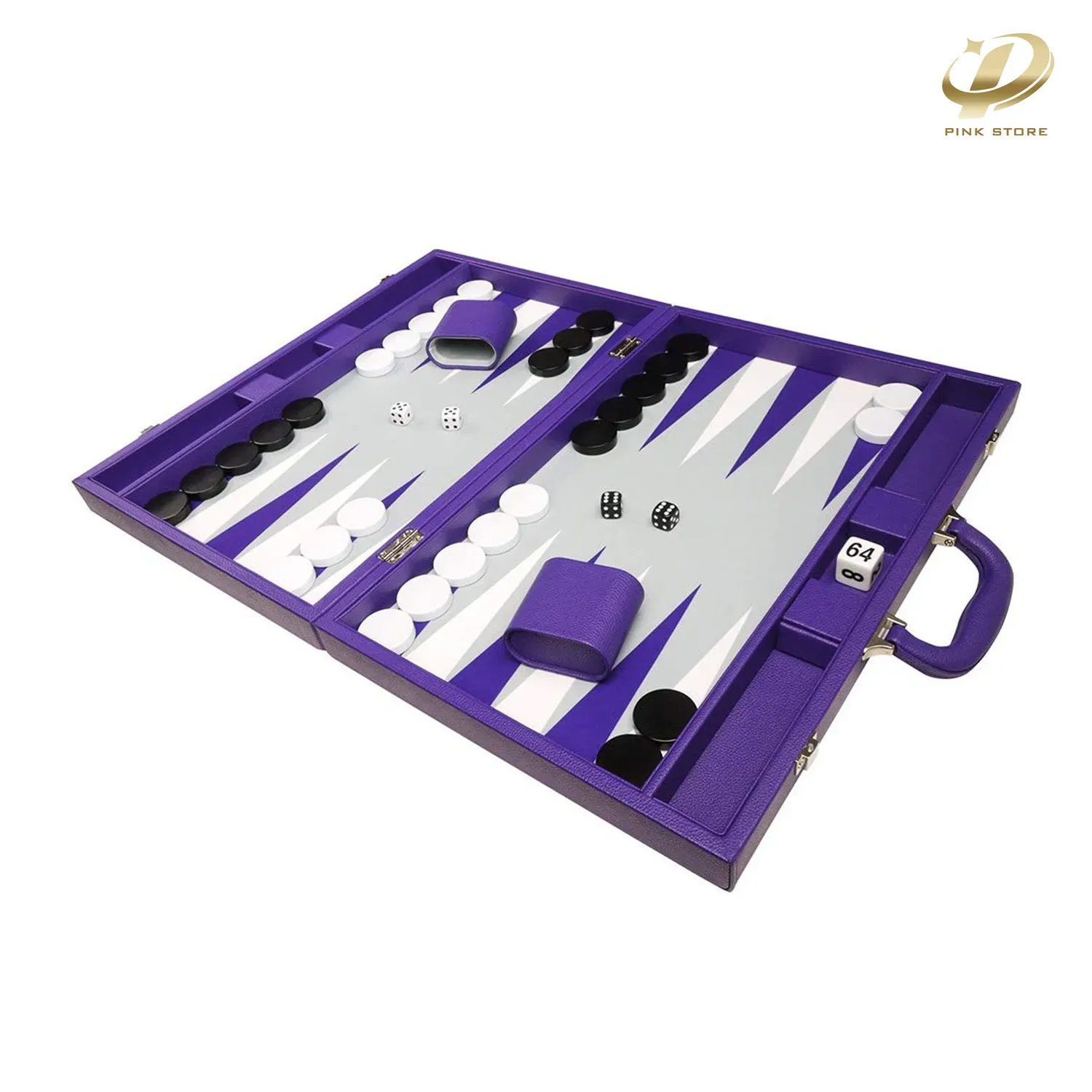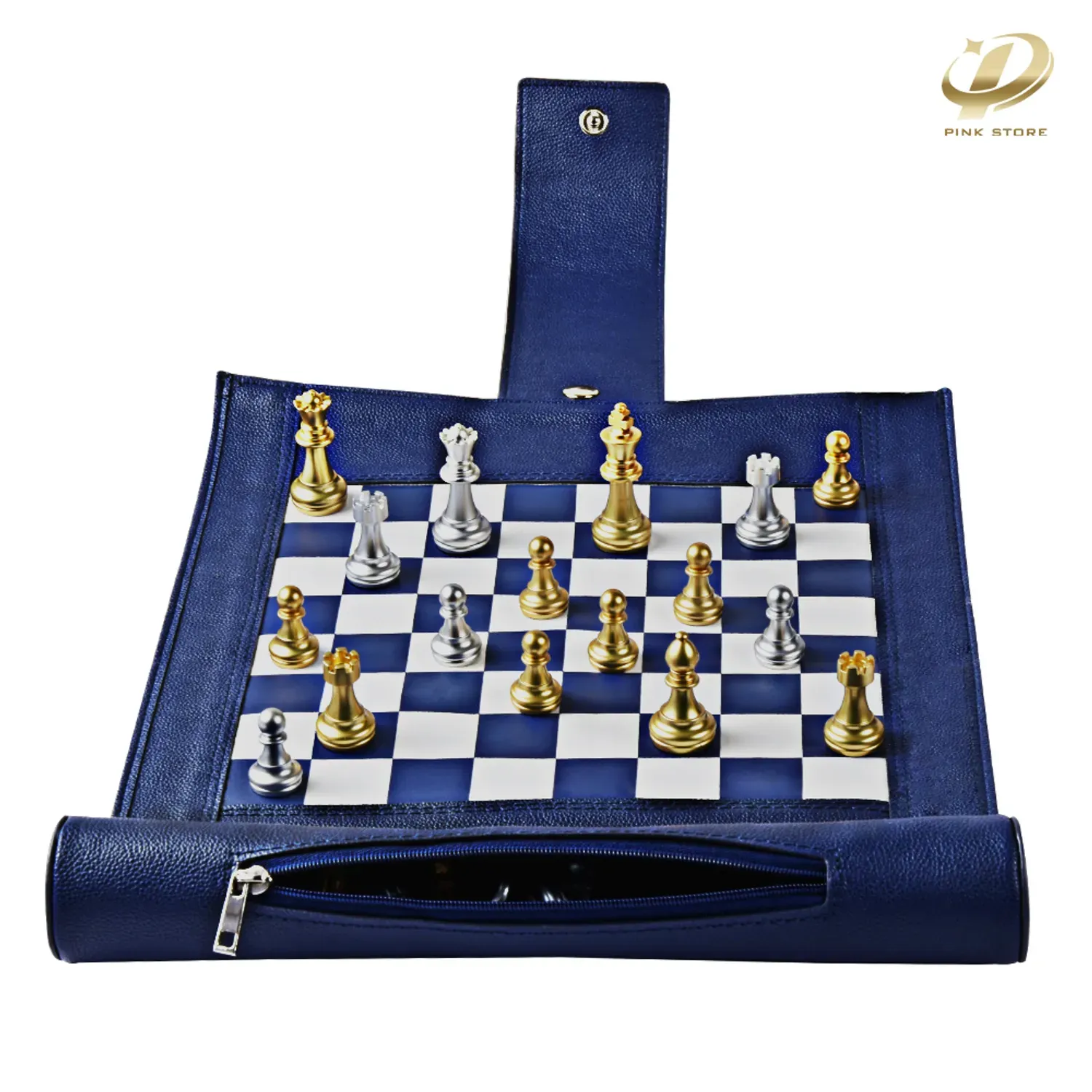
Get A Quote
Is Backgammon as Hard as Chess?
Backgammon and chess are two of the oldest and most beloved board games in the world. While they share some similarities, such as their deep historical roots and strategic elements, they are distinct in many ways. One of the most common questions enthusiasts and newcomers alike ask is, "Is backgammon as hard as chess?" This article will explore this intriguing question in depth, comparing the complexities and challenges of each game.
The Fundamentals of Backgammon and Chess
Understanding Backgammon
Backgammon is a game of strategy, skill, and luck. It involves two players who each have 15 pieces, known as checkers, which they move around a board consisting of 24 points based on the roll of two dice. The objective is to be the first to move all of your checkers off the board.
The Complexity of Chess
Chess, on the other hand, is a purely strategic game played on an 8x8 grid between two players. Each player commands an army of 16 pieces, including pawns, knights, bishops, rooks, a queen, and a king. The goal is to checkmate the opponent's king, putting it in a position where it cannot escape capture.
Comparing the Strategic Depth
The Role of Luck in Backgammon
One significant difference between backgammon and chess is the element of luck. In backgammon, the roll of the dice introduces an element of chance that can significantly impact the game. Players must develop strategies to optimize their moves based on the possible outcomes of the dice rolls. This blend of luck and skill makes backgammon a unique challenge.
Pure Strategy in Chess
In contrast, chess is devoid of any luck factor. Every move is the result of strategic planning, and the outcome of the game relies entirely on the players' decisions. The sheer number of possible moves and countermoves in chess creates a depth of strategy that can take years, if not a lifetime, to master.
The Learning Curve
Getting Started with Backgammon
Backgammon is relatively easy to learn. The basic rules can be understood quickly, and new players can start enjoying the game almost immediately. However, mastering backgammon requires a deep understanding of probability, risk management, and positional play. The use of doubling cube, which allows players to raise the stakes during the game, adds another layer of strategic complexity.
The Complexity of Chess Rules
Chess, on the other hand, has a steeper learning curve. The different movements of each piece, the rules of castling, en passant, and promotion, as well as the concept of check and checkmate, can be overwhelming for beginners. However, once these basics are mastered, the real challenge lies in understanding openings, middle-game strategies, and endgame techniques.
Psychological and Mental Challenges
Decision-Making Under Uncertainty in Backgammon
In backgammon, players must constantly make decisions under uncertainty due to the dice rolls. This aspect of the game requires players to adapt their strategies on the fly and manage risks effectively. The psychological pressure of deciding whether to accept a double or pass can be intense, adding a unique mental challenge to the game.
The Intense Focus of Chess
Chess demands intense concentration and mental stamina. Players must think several moves ahead, anticipate their opponent's strategies, and stay focused for potentially several hours. The mental exhaustion from a long chess match can be significant, and the psychological aspect of outwitting an opponent adds another layer of difficulty.
Advanced Strategies and Skills
Mastering Backgammon Tactics
Advanced backgammon strategies involve understanding the probabilities of different dice outcomes and employing tactics such as blocking, hitting, and building primes. Experienced players also use the doubling cube strategically to pressure opponents and gain an advantage. The combination of tactical maneuvers and probability assessment makes backgammon a complex game at higher levels.
The Depth of Chess Strategy
Advanced chess players study openings, middlegame tactics, and endgame positions in great detail. They memorize countless patterns and sequences, understand positional nuances, and utilize deep analytical thinking. The existence of vast databases of historical games and modern computer analysis tools has elevated the level of competitive chess to unprecedented heights.
Accessibility and Popularity
The Widespread Appeal of Backgammon
Backgammon is popular worldwide and is particularly well-loved in the Middle East and Europe. Its blend of luck and skill makes it accessible to a broad audience, from casual players to serious competitors. Online backgammon platforms have also made it easier for players to find opponents and improve their skills.
Chess: A Global Phenomenon
Chess enjoys immense global popularity and is played competitively in virtually every country. The rise of online chess platforms and streaming services has brought the game to a wider audience. High-profile tournaments, including the World Chess Championship, attract millions of viewers and contribute to the game's prestige and allure.
Conclusion
In the end, the question "Is backgammon as hard as chess?" doesn't have a definitive answer. Each game has its own unique set of challenges and rewards. Whether you prefer the strategic complexity of chess or the blend of luck and skill in backgammon, both games can provide a deeply satisfying experience for players of all levels. Embrace the challenge, and enjoy the journey of mastering these timeless games.
If you’re looking to purchase high-quality board games like backgammon and chess, look no further than Pinkstore. As a leading wholesale supplier, Pinkstore offers a vast selection of bulk board games at competitive prices. Whether you’re a retailer looking to stock up or an enthusiast wanting to expand your collection, Pinkstore has you covered. Explore their extensive inventory today and find the perfect game to challenge your mind and bring hours of enjoyment. Visit Pinkstore to discover your next great game!


